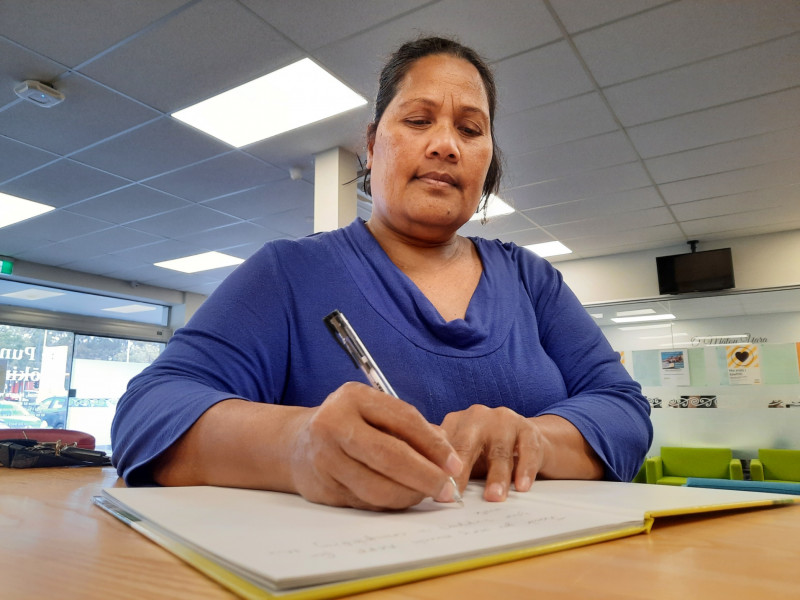Writing in the genes
Writing in the genes

Kinaua Ewels (pictured) believes she inherited her skill for writing from her grandfather Konenerio, a great composer and orator in the Kiribati language.
A Teacher at Papakura’s Cosgrove School, Kinaua spent her childhood on the Kiribati islands of Abaiang, Arorae, Maiana and Tamana.
Kinaua attended the Government-run King George V and Elaine Bernachi School, before earning her Certificate and Diploma in Primary School Teaching from Tarawa Teachers College, now known as Kiribati Teachers College (KTC).
“I began teaching at various primary schools on different islands, Tekuku Primary School – Tabiteuea South, Tebwanimwaneka Primary School and Temwanoku School – South Tarawa, as well as Margret Field School in Tamana,” Kinaua explains.
With her passion for teaching piqued, she moved to New Zealand to attend Auckland College of Education in Epsom.
“I completed my Bachelor of Education in June, 2004 and got married later that year to my Kiwi husband Andrew.”
Three children later, and the couple enjoy family life living at Maraetai Beach, in East Auckland.
Feeling a need to “pay her dues”, Kinaua returned to Kiribati to teach at KTC for a few years, a rewarding thing to do, she says.
She is very much involved in the Kiribati community here in New Zealand and is a Kiribati Project Manager and Funding Coordinator role at the Kiribati National Council.
In the limited spare time she has, Kinaua loves to write children’s bilingual and educational books.
“I decided to write I want to Read and Speak Kiribati, which was published in 2007 at my own expense,” she says.
“Fortunately, I met a special person Tuiloma Nina from the Ministry for Pacific Peoples, who encouraged me to pursue writing – but to apply for the Community Languages Fund.
“Additionally, I applied to the Ministry of Education’s Pacific Education Innovation Fund to support me to complete the books and to print copies.”
Kinaua’s latest book Konenerio and the Flag Master is based on a story stored within her family for generations.
“I have been sharing the story in schools where I have taught, and with members of my church.
“Most people who I have shared the story with have encouraged me to write it down.
“The story is precious to me as it tells the history of my family, the faith of my grandfather and his attributes.
“It also tells the world Kiribati people contributed to save people’s lives in the Second World War.”
There was little first-hand information that was told about Kiribati during World War Two, Kinaua says.
“This book tells the story of the Kiribati people and how they relied on their faith, the Bible and the Coast Watcher’s knowledge to survive during the war.”
She adds her grandfather’s kind heartedness, brave and caring nature looking out for his church members and the Kiribati people are the inspiration for this story.
“I want this story to live on and be shared and remembered in the wider community.”
The Community Languages Fund has assisted Kinaua immensely, making it possible for her to write and complete the book start to finish.
By sharing her story, Kinaua hopes to promote the Kiribati language and encourage other cultures to learn about Kiribati and its history by reading both in Kiribati and English, she says.
There is no rest for the part-time Author, who is in the process of writing more books on Kiribati, Poetry, Myths and Legends.
“I have been setting up a group for Kiribati people and encouraging them to use their knowledge and skills to write more about Kiribati.
“And I am also working on a Kiribati Grammar Book with other Kiribati people in New Zealand which is going to be published soon.”
A reminder Kiribati Language Week is happening soon, from July 11-17.
